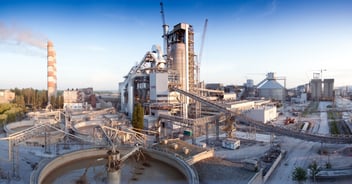
ERP for Manufacturers: How ERP Solutions Address Labor Shortages & Improve Efficiency
Published :

The manufacturing industry is facing an unprecedented challenge: a global labor shortage. According to a Korn Ferry study, the global talent shortage is projected to reach 85 million people by 2030, potentially resulting in trillions of dollars in lost economic opportunity. In the US alone, manufacturers need to fill 3.8 million roles over the next decade, as reported by The Wall Street Journal. This scarcity of skilled workers is disrupting production schedules, increasing costs, and threatening the ability of manufacturers to meet customer demands.
Traditional solutions like hiring temporary workers or offering higher wages are no longer sufficient. These approaches are costly, unsustainable, and fail to address the root cause of the problem. To thrive in this new reality, manufacturers must embrace innovative solutions that optimize resources, streamline operations, and enhance efficiency. Enter ERP for Manufacturers—a game-changing technology that empowers manufacturers to 'do more with less."
ERP systems are no longer just about managing finances or inventory; they have evolved into comprehensive platforms that integrate all aspects of a manufacturing business. By automating repetitive tasks, providing real-time insights, and optimizing resource allocation, ERP solutions are helping manufacturers overcome workforce challenges. Here’s how:
Manual processes are time-consuming, error-prone, and heavily reliant on human labor. ERP systems automate tasks such as data entry, order processing, and inventory management, freeing up employees to focus on higher-value activities. For example, finance teams can automate reconciliations, invoicing, and reporting, reducing human effort and minimizing errors.
With real-time data at their fingertips, manufacturers can make faster, more informed decisions. ERP for Manufacturers provides visibility into every aspect of operations, from shop floor activities to supply chain logistics. This enables managers to identify bottlenecks, allocate resources effectively, and respond swiftly to changing conditions.
Labor shortages often lead to production delays and inefficiencies. ERP systems use advanced algorithms to optimize production planning and scheduling, ensuring that resources are used efficiently and production targets are met. This reduces reliance on manual labor and minimizes downtime.
ERP systems offer a wide range of features designed to address the specific challenges faced by manufacturers. Here are some of the most impactful:
Smart manufacturing leverages technologies like IoT and AI to optimize production processes and manual operations. By automating workflows and providing real-time monitoring, ERP for Manufacturers reduces the need for manual intervention and improves overall efficiency. For example, predictive maintenance can prevent equipment breakdowns, reducing downtime and the need for skilled technicians. Integrated systems obviate the need for multiple requests, approvals, and manual data entries.
Finance automation is a game-changer for manufacturers. ERP systems streamline tasks like reconciliations, invoicing, and financial reporting, reducing the need for manual effort. According to a report, businesses using ERP for financial management have experienced significant reduction in errors, ensuring compliance and accuracy.
Labor shortages in sales teams can lead to delayed order processing and customer dissatisfaction. ERP for Manufacturers integrate Customer Relationship Management (CRM) and order processing, automating tasks like order entry, tracking, and fulfillment. This ensures minimal disruption even with reduced sales staff.
Real-time inventory and supplier management are critical in today’s fast-paced manufacturing environment. ERP for Manufacturers provides visibility into inventory levels, supplier performance, and demand forecasts, reducing the need for extensive human intervention. This helps manufacturers avoid stockouts, minimize excess inventory, and improve supply chain resilience
PEPS, one of India’s leading mattress manufacturers, faced significant challenges in managing orders from e-commerce platforms like Amazon and Flipkart. The company used to spend 90 mandays on tasks like order fulfillment and reconciliation. After implementing Ramco’s ERP system, these tasks were completed in just a few minutes, drastically improving efficiency and reducing labor dependency.
This manufacturer struggled with slow transaction processing times, which impacted productivity. By leveraging ERP for Manufacturers automation and bulk processing, the company reduced transaction processing time by 90%, enabling faster decision-making and improved operational efficiency.
The future of ERP for Manufacturers lies in its integration with emerging technologies like AI, automation, and robotics. These advancements will further enhance the capabilities of ERP systems, enabling manufacturers to achieve even greater levels of efficiency and agility.
For example:
As these technologies mature, ERP systems will become even more indispensable for manufacturers looking to stay competitive in a labor-constrained world.
The manufacturing industry is at a crossroads. Labor shortages are no longer a temporary challenge but a long-term reality that requires innovative solutions. ERP systems offer a way for manufacturers to optimize resources, streamline operations, and improve efficiency, enabling them to "do more with less."
For mid-market manufacturers, investing in ERP is no longer optional, it’s a strategic imperative. By integrating manufacturing and corporate functions, automating repetitive tasks, and leveraging real-time insights, manufacturers can overcome workforce challenges and achieve their aspirations of on-time deliveries, minimized production costs, and improved supply chain resilience.
The time to act is now. Don’t let labor shortages hold your business back. Explore how an ERP for Manufacturers solution can transform your operations and position your company for long-term success.

All Rights Reserved. © Copyright 2024. Ramco Systems.